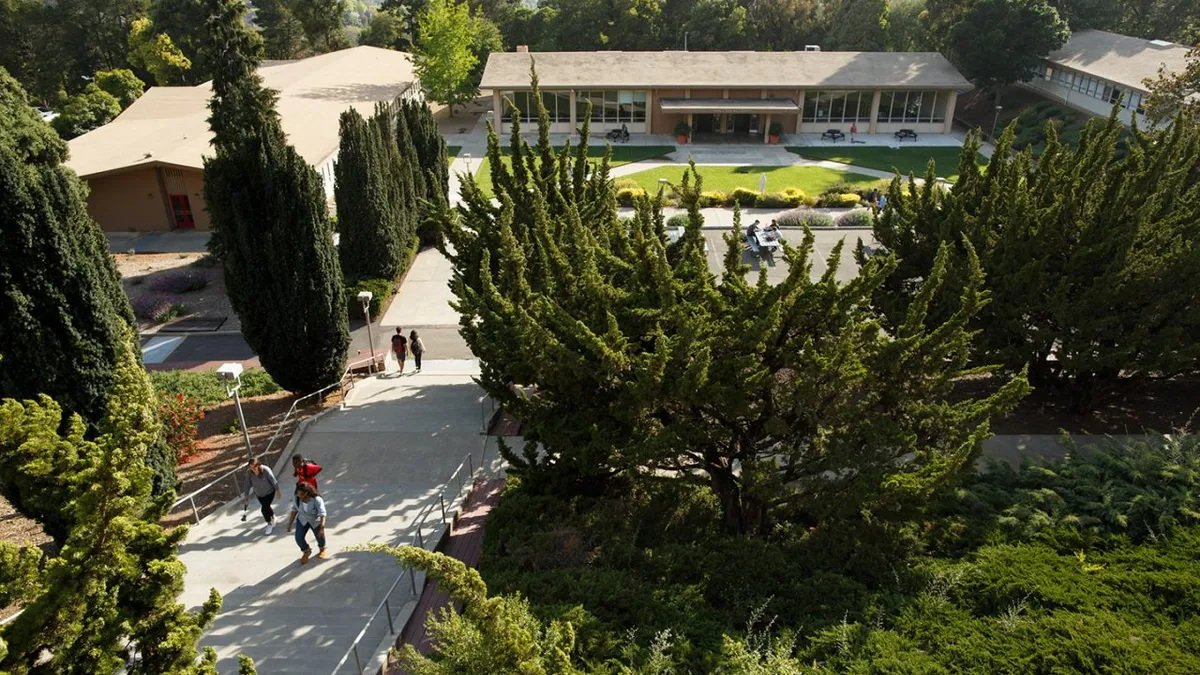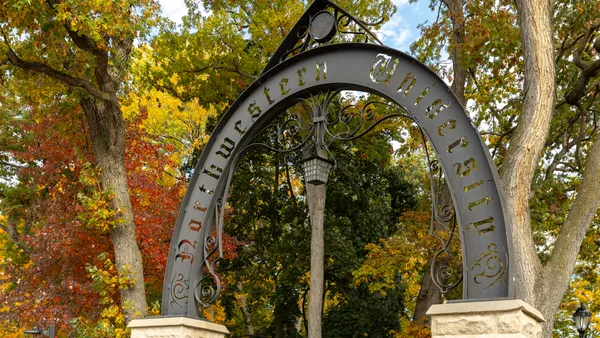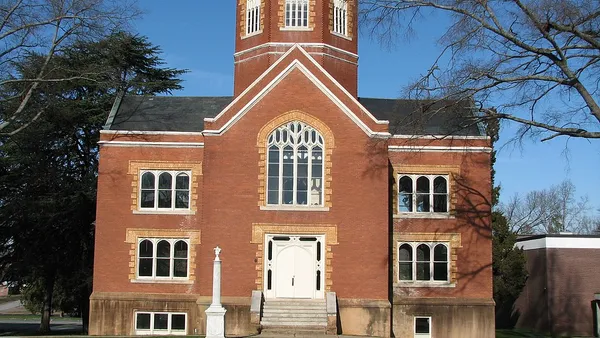Dive Brief:
- Holy Names University, a 154-year-old Catholic institution in Oakland, California, that serves a large number of first-generation and low-income students, will shut down when its spring semester ends in May because of rising costs and falling enrollment, it announced Monday.
- Leaders decided in November 2021 that their best option for the future was finding a merger partner. But after a year's work and a national search, they didn't find a taker for the institution, which is saddled with tens of millions of dollars in debt and hundreds of millions of dollars' worth of deferred maintenance.
- Plans call for Dominican University of California, about 26 miles away, to take on Holy Names' academic programs, should accreditors approve. Holy Names students will be able to continue studying at Dominican. The university will also consider hiring Holy Names faculty and staff.
Dive Insight:
Holy Names joins a spate of small nonprofit colleges across the country announcing in recent weeks that they are shutting down, merging or on the brink of closure.
Cazenovia College in upstate New York plans to close at the end of its spring semester, and Presidio Graduate School in San Francisco is being acquired by the University of Redlands, which is based in Southern California. Both cited financial pressures. In Alabama, Birmingham-Southern College is asking for $37.5 million in public funding to stay open past May.
Such consolidation has widely been expected as colleges — many of which have been under financial pressure for years — feel the aftereffects of the COVID-19 pandemic. A long-anticipated dip in the number of high school graduates who've traditionally gone on to enroll in college is also arriving, following low birth rates during the Great Recession.
But the pressures have unfolded in different ways at colleges operating in various markets to serve widely disparate student bodies.
Holy Names presented some financial drawbacks for any institution that would have acquired it. The institution has a 65-year-old campus. It estimates deferred maintenance costs and the expense of compliance upgrades to be over $200 million. The campus also carries $49 million in debt.
The university depends on tuition and residence hall revenue to fund its budget. It was trying to pour investments into fundraising, technology, marketing, student support services and curriculum under a five-year plan dating back to 2018.
Some positive movement came thanks to new program launches and a digital learning effort, according to a letter posted by the institution's board of trustees chair, Steven Borg, and its vice president for mission integration, Carol Sellman. But the COVID-19 pandemic and recent economic downturn hit Holy Names students especially hard.
Many are first-generation students and hail from under-resourced communities, the university said in a news release. Federal data shows over half of its undergraduates received federal Pell Grants, which are a proxy for low-income status, in 2020-21.
“Like many colleges and universities nationally, HNU has faced many headwinds including increasing operational costs, declining numbers of high school graduates nationally and economic shifts leading to declining enrollment," Borg said in a statement.
In fall 2020, Holy Names enrolled 1,014 students — 624 undergraduates and 390 graduate students, according to an annual report it filed for lenders. By fall 2022, enrollment eroded to 943 students — 520 undergraduates and 423 graduate students.
That was far behind numbers targeted in the five-year strategic plan, which called for 1,544 total students in fall 2022.
Enrollment has plunged further for the spring semester, the university said. Just 449 total students are registered for spring 2023.
"The financial situation of the university changed dramatically this fall," Borg said. "It was a herculean effort to find a path to the spring semester and allow HNU an orderly end."
Holy Names listed full-time tuition and fees at about $42,000 for 2022-23, not counting room and board. But like many colleges, it deeply discounts that price for students. Its undergraduate discount rate was 69% in 2019-20.
That's far higher than the average discount rate for private nonprofit undergraduates, which was 49% in 2021-22, according to the National Association of College and University Business Officers.
Holy Names has been losing money for years. It hasn't posted an operating surplus since at least 2018, the financial statements for lenders show. It lost $2.2 million in 2018, followed by losses of $8.4 million in 2019, $8.6 million in 2020 and $4.2 million in 2021.
Holy Names plans to lay off 32 employees at the end of January and in early February. The university is still in talks to keep its music program going at a different institution, and a learning institute and day school the university operates for children and adults with learning disabilities will either transition to independent operation or partner with a new institution.
The university's founding and sponsoring order, the Sisters of the Holy Names of Jesus and Mary, issued a statement offering prayers for students and employees.
"This is a painful moment for all of us, including the University’s Board of Trustees, who have been entrusted with leadership and fiduciary responsibility," it said.













